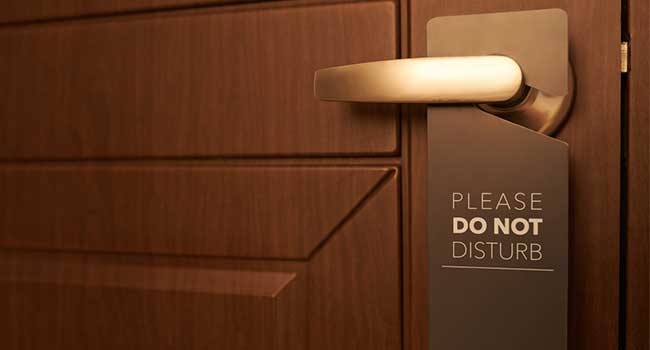
Hotels Defying Do Not Disturb Signs
Even if guests put up a “Do Not Disturb” sign on their door, security will enter the room to perform the search.
- By Jordan Lutke
- Aug 23, 2018
Caesars Entertainment, one of the world’s largest casino companies, is ruffling customers’ feathers with newly minted security procedures in the wake of the October 2017 mass shooting in Las Vegas.
Caesars began the rollout of these new policies in February 2018, mandating a visual search of a room by security personnel if hotel staff have not had access to the room in over 24 hours. Even if guests put up a “Do Not Disturb” sign on their door, security will enter the room to perform the search.
Other new security policies include hotel staff being given small panic buttons to use if they feel threatened, and the use of security to enter rooms instead of housekeepers being alone to do so.
Caesars Entertainment will join other hotel giants including Disney and Hilton in enacting new security policies following the Oct. 1, 2017 massacre at Mandalay Bay Resort & Casino, where a guest in a corner suite rained gunfire on a music festival, killing 58 people and wounding hundreds more.
The guest in question had a “Do Not Disturb” sign on their door for three consecutive days prior to the attack, and during this time stockpiled over 20 guns and hundreds of rounds of ammunition.
The fallout of these new security policies was sudden and pronounced earlier this month at DEFCON, a hacking convention held annually in Las Vegas. Dozens of attendees staying at Caesar’s Palace reported and often even recorded unannounced security incursions into their rooms, despite “Do Not Disturb” signs. Items that, according to the hotel, resembled weapons were confiscated, such as lighters and soldering irons.
There is no industry standard for how long hotels wait before attempting to contact guests.
About the Author
Jordan Lutke is an intern with 1105 Media.